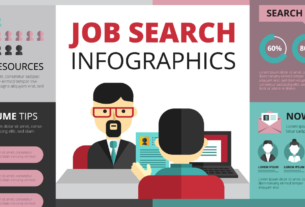Career counseling for individuals with disabilities
People with disabilities often face unique challenges in pursuing their career goals. These challenges can be physical, cognitive, or emotional, and can significantly impact an individual’s ability to enter and succeed in the workforce. Career counseling for individuals with disabilities aims to provide guidance and support to help these individuals navigate the complex job market. A find meaningful employment that matches their skills and interests. This type of counseling can involve a range of services including identifying job opportunities, developing job search skills. Exploring accommodations and workplace modifications, and addressing any barriers to employment that may exist. Here are some steps to follow
Step 1: Assess the individual’s strengths
The first step in career counseling for individuals with disabilities is to assess their strengths and limitations. This may include a review of their educational and work history, as well as any physical or cognitive limitations that may impact their career options. It is important to assess an individual’s strengths and limitations when providing career counseling. By identifying their strengths such as skills, interests, and values, the individual can be guided towards careers that align with their abilities and passions.
Step 2: Identify career interests
The next step is to identify the individual’s career interests. This can be done through a series of assessments, including interest inventories, skills assessments, and personality tests. Career interests are the areas of work that individuals find appealing and engaging. These interests can include specific industries, job roles, tasks, or skills. Understanding an individual’s career interests is an essential component of career counseling, as it helps individuals identify suitable career paths and make informed decisions about their future.
Step 3: Explore career options
Once the individual’s interests and strengths have been identified, it’s important to explore career options that align with their abilities and interests. This may involve researching different careers identifying potential employers and learning about job requirements and expectations. Career counseling involves helping individuals explore and evaluate different career options based on their interests, values, skills, and personality. Some career options for career counselors include working in schools, universities, or private practice. They can also specialize in certain areas such as executive coaching, vocational rehabilitation, or career transition counseling.
Step 4: Develop an action plan
Once the individual has identified potential career paths, it’s important to develop an action plan for achieving their goals. This may include identifying educational or training programs, developing a resume, and networking with potential employers. Identify the client’s career needs and goals. Assess the client’s strengths, interests, and values. Research career options and match them with the client’s profile. Develop an action plan with achievable steps to reach the desired career outcome. Provide ongoing support and guidance throughout the career counseling process.
Step 5: Provide ongoing support
Career counseling for individuals people with disabilities is an ongoing process. It’s important to provide ongoing support and guidance to help them achieve their goals. This may involve providing job search assistance coaching on workplace etiquette and communication. Advocating for accommodations and support services as needed. Ongoing support is crucial in career counselling as it ensures that clients receive continued guidance and assistance as they progress through their career journeys. This support can take many forms including regular check-ins access to resources and mentorship programs. Providing ongoing support helps clients stay on track and achieve their career goals.
Overall, career counseling for individuals with disabilities is a collaborative process that involves working closely with the individual to identify their ideal career strengths, interests, and goals, and to develop a plan for achieving those goals. By providing ongoing support and guidance, career counselors can help individuals with disabilities overcome obstacles and achieve success in their chosen careers.
Conclusion:
In conclusion, career counseling for individuals people with disabilities is a crucial aspect of ensuring that they have equal opportunities in the workforce. By providing tailored guidance and support, career counselors can help individuals with disabilities identify their strengths and interests, explore different career paths, and develop the skills necessary to succeed in their chosen field. It is important for career counselors to be knowledgeable about disability-related issues and to use a person-centered approach that takes into account each individual’s unique needs and abilities. With the right support, individuals with disabilities can achieve their career goals and contribute meaningfully to the workforce.
FAQs:
What is individual career counseling?
Individual career counseling is a one-on-one process where a trained counselor helps an individual explore their career options and develop a personalized plan for achieving their career goals. It involves assessing skills, interests, and values to make informed career decisions.




